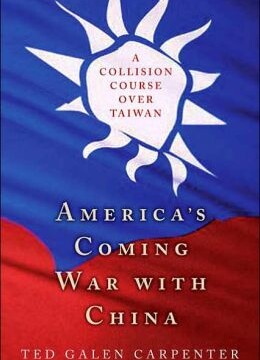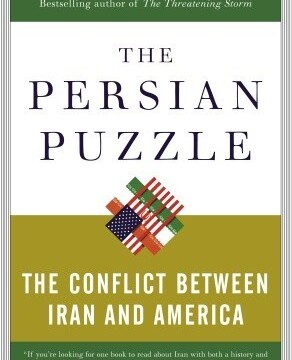“Allies fear a U.S. Pullback in Mideast,” shouted a headline splashed on the front page of the Wall Street Journal, reflecting a sense of hysteria in Israel and Saudi Arabia that the diplomatic rapprochement between Washington and Tehran was “just the latest evidence that a war-weary U.S. is slowly seeking to close the books on...
Author: Leon Hadar (Leon Hadar)
Eve of Destruction?
Like some of you, I’ve been on the receiving end of an e-mail bombardment from friends who have expressed their shock and dismay over the recent shutdown of the U.S. federal government and the entire political and legislative impasse between the White House and congressional Republicans. I’ve been told by my British, French, and Chinese...
Summer of Sharia
So here we are a year and a half after the start of the protests of Tahrir Square in Cairo, which Tom Friedman and the rest of the Arab Springers had promised would give birth to a New Middle East, where democracy and liberal values would reign from here to eternity, and Arabs and Muslims...
Bombing Iran
As an American President prepares for his reelection campaign, he has to deal with a complex crisis in the Middle East. A radical regime is projecting its military power, trying to destabilize the pro-American governments in the Middle East, threatening the state of Israel, and aiming to achieve regional supremacy. America’s allies in the Middle...
Sunni Spring
Middle East historian William W. Harris described the Levant as the “eastern Mediterranean littoral between Anatolia and Egypt,” a geographical zone that includes most of modern Lebanon, Syria, Jordan, Israel, and the West Bank and the Gaza Strip, and a “fractured cultural mosaic” of ethnic and religious groups. Modern Syria, the largest Arab state to...
Statehood Bid
Much of the international politics of the 20th century revolved around the drive for national self-determination, such as that of the Serbs in the Balkans, setting in motion the crises that led to the Great War, or that of the Germans in the Sudetenland, aggravating the tensions that brought about the titanic clash between the...
Isolating Israel
Neoconservative ideologues have joined liberal internationalists and left-wing global utopians in celebrating the collapse of the authoritarian regimes in Tunisia and Egypt and the ensuing political uprising in other Arab countries. Their glee suggests that the Middle East is about to go through the kind of political and economic reforms that have been sweeping the...
A Defining Moment
In itself, the Israeli military’s raid on the “Free Gaza” aid flotilla was proof, as the astute thinker Forrest Gump put it, that “Stupid is as stupid does.” The flotilla was sponsored by a mishmash of Western lefty peaceniks and Turkish-backed Islamist groups that were trying, to use historian Daniel Boorstin’s term, to produce a...
Battle of the Narrative
When a manufacturing company is confronted with the reality of a huge drop in product sales, the initial reaction on the part of the managers is to blame the marketing department and to demand that it come up with a new and more effective advertising campaign. After all, the notion that their air-conditioning units are...
Obama’s Right-Wing Cheerleaders
The Tea Partiers and the Town Hallers are clearly angry that the Obama administration so quickly began to pursue policies that run contrary to traditional conservative values—values that are based on skepticism of, if not hostility toward, the role of government in the management of human affairs. Indeed, if there was one thing that used...
Iran and Her Smiles
In the aftermath of the ousting of Saddam Hussein and the “liberation” of Iraq by U.S. forces, Bush-administration officials who had earlier compared Saddam to Hitler extended that analogy and suggested that postwar Iraq was like post-World War II Germany and Japan and Italy, where the U.S. military occupation helped replace totalitarian regimes with thriving...
Israel’s Counterelites
Conventional wisdom has it that the recent parliamentary election in Israel has swayed Israeli politics further to the political right. After all, the balance of power in the 120-member Knesset has shifted quite dramatically. The political bloc that included the centrist Kadima Party and Labor, which dominated the outgoing government in Jerusalem, was reduced from...
Two—State Solution, R.I.P.
Upon being congratulated for defeating the Romans at Asculum in 279 b.c. during the Pyrrhic War, King Pyrrhus of Epirus, who had lost half of his army during the battle, said something to the effect of “Another victory like this, and we’re done for.” Hence the phrase “Pyrrhic victory,” which could probably be applied to...
Whither Obama’s Foreign Policy?
According to the Washington Post, a senior diplomat from a major European country, a Middle Eastern ambassador, and an Asian ambassador—all of whom represent “major, big-league countries”—have been getting lots of messages from their home offices wondering how exactly President Obama will exert his influence over the contracting American Empire. Apparently “Barack Obama’s folks aren’t...
The Guest Who Stayed Forever
I wish I had a dollar—oops, better make that a euro—for every recent obituary marking the political death of neoconservatism. I would have been able to bail out the grand financial house of Lehman Brothers and avert the tragedy of one more Wall Street fat cat being forced to lay off another maid in his...
Surging Toward a Time Horizon
Having listened to recent statements made by President George W. Bush and his presumptive heir, John McCain, I am impressed that these two carriers of the neocon torch expect the opponents of their disastrous military misadventure in Mesopotamia, including presumptive Democratic presidential candidate Barack Obama, to crawl on all fours before the War Party’s leaders,...
Neo-McCainism: The Highest Stage of Neoconservatism?
It is difficult to imagine, but there was a time when pundits in Washington were tagging John McCain as the ultimate unneoconservative Republican figure whose nationalist yet pragmatic approach to foreign policy was being viewed with suspicion by your average global democratic crusader—not to mention the members of what Pat Buchanan described as Israel’s Amen...
The New Middle East
On March 20, President George W. Bush marked the fifth anniversary of the beginning of the Iraq war by stating that the decision to remove Saddam Hussein from power was and always will be the right one. His view is not that of the majority of Americans, who are citing the high costs in American...
Obama and the “Jewish Vote”
“Concern in Jerusalem: Obama Is Getting Closer to the Presidency” was the headline on the front page of Ma’ariv, an Israeli daily. “Sources in Jerusalem are worried over the erosion in the support for Hillary Clinton who is considered more supportive of Israel,” the paper reported after the Iowa caucuses, reflecting the rising sentiment among...
Another Middle East Fantasy
There is an element of cognitive dissonance in the way that many members of the reality-based community in Washington tend to approach U.S. policy in the Middle East. Many of my colleagues in Washington have urged policymakers to adopt a sense of realism about the American ability to achieve reconciliation between the ethnic and religious...
Pakistan: Here We Go Again
Condi Rice had a vision: It was springtime in Pakistan, and love was in the air—which was an ideal time for a chick flick. From the lady who brought us the Shiite-Sunni Love Fest in Iraq, Fatah-Hamas: Isn’t It Romantic? in Palestine, The Amorous Cedars in Lebanon, not to mention the first season of Democratic...
Best-Laid Plans
A day or two after the signing of the Oslo Accords on September 13, 1993, I attended a meeting at a think tank in Washington to discuss the economic prospects of an independent Palestinian state. One of the speakers outlined a very economically bullish vision for the new Palestine—the West Bank plus the Gaza Strip. ...
Coalition of the Unwilling?
Recently, I attended a conference in Washington, D.C., that focused on the dilemmas involved in the expansion of NATO. One of the American speakers, referring to the membership of the small Baltic nation of Estonia in the U.S.-led security organization, expressed concern that the Estonians could force the Americans into a military confrontation with the...
The War on Terror Ended
Unlike some of my readers, I’m old enough to remember the time, during the American occupation of Baghdad, when this part of the city was known as the Green Zone. It was renamed the Yellow Peace Zone ten years ago, after Iraq joined the China-led Association of South-West Asian Nations (ASWAN). In fact, I’m digital-delivering...
Shooting Elephants With Our Man in Baghdad
A college professor who is planning to teach a course on imperialism contacted me recently, asking for my recommendations for the course’s reading list. If I had only one item to suggest for his class on empire and its discontents, it would not be an essay in history, political science, or economics. Instead, I would...
It’s the War, Stupid!
Political analysts, consultants, and “scientists,” envious of the success of economists in turning the study of wealth creation into a scientific discipline and a lucrative profession, are always searching for rules and laws to explain and discover certain regular and logical structures in human efforts involved in winning, preserving, and expanding power. Elections provide a...
Can Baker Clean Up the Mess in Iraq?
If a man (person?) from Mars were to have landed in Washington in late November, he (or she?) would have had no choice but to conclude that the important decisions in the capital of the World’s Only Remaining Superpower are made by two mighty dudes. Note to Mars: The real Masters of the Universe are...
Post-Lebanon II: Constructing Narratives
A friend who has just returned from Lebanon told me that one of the jokes he heard before leaving Beirut was that the Bush administration decided to hire Hezbollah as one of the faith-based organizations that would help in the rebuilding of post-Katrina Louisiana. After all, the Lebanese Shiite group has been assiduously reconstructing the...
The Pitfalls of Ambiguity
The conventional history of President George W. Bush’s foreign policy has traced the ascendancy of the neoconservative ideologues in his administration to the September 11, 2001, attacks on the United States and the ensuing “War on Terror,” the invasion of Iraq, and regime-change schemes in the Middle East. The common assumption among analysts is that,...
After Zarqawi: The New Thirty Years’ War
When the U.S. government toppled Sad-dam Hussein in 2003, it thought regime change would help bring democracy to Iraq, and then to the rest of the region. President Bush and his aides based their expectations on the premise that politics in the Middle East revolves around the relationship between individuals and the state, as it...
Trying Saddam
Robert A. Taft, in a speech delivered at Kenyon College in October 1946, expressed strong opposition to the Nuremberg War Crimes Trials that were just ending. Taft argued that the defendants, the architects of the Nazi regime who had been found guilty of waging a war of aggression and had been sentenced to death, were...
Hamas-led Palestine
After Hamas, the radical Islamic and anti-Western movement and terrorist organization, achieved victory in the Palestinian parliamentary elections, I was invited by a leading think tank in Washington to debate with another Middle East analyst the implications of that stunning development for U.S. policy in the Middle East and the moribund “peace process.” I found...
Goodbye, Greater Israel; Hello . . . What?
My name and title (“global-political and economic-affairs analyst”) appears on a few rolodexes on the desks of the young ladies, a.k.a. “schedulers,” who are in search of pundits—that is, pompous think tankers and retired foreign-policy types who are willing “to do Iraq” or “to do Iran” (in Washington lingo) or some other international crisis. So...
Misinterpreting Iran—and the World
“Learn to think imperially.” —Joseph Chamberlain Imagine that, for a few years, you had been investing the money you had saved for your daughter’s college education in one of those moderately conservative plans that provide some increase in the value of the investment without exposing it to major risks. But then your financial planner—let’s call...
“Courageous” Sharon “Disengages” From Gaza
You’ve probably heard the one about the boy who murdered his parents and then asked the court for mercy because he was an orphan. But what if, after being pardoned by the judge, who had taken into consideration his heartbreaking experience, the young kid also demanded that the state provide him with financial assistance to...
A Tale of Two Cities
Many American Jews suffer culture shock when they first visit Tel Aviv. Having grown up watching reruns of the movie Exodus, they imagine Israelis as yarmulke-wearing cowboys valiantly defending their land against attacks from vicious tribes of Arab terrorists. Arriving in Tel Aviv, they find a bustling city full of secular, middle-class Israelis practicing their...
Neoconservative Ideology
The neoconservative ideology of Western (preferably American) democracy and free markets is a form of secular religion. The door to this secular church begins to open to the sinner when he starts surfing the internet, watching CNN, eating at McDonald’s, and reading the gospel according to Tom Friedman. And he (“or she”—adding that is itself...
Whose Bias?
Two years ago, I was invited to address a group of Jewish-American women on the question, “Is the American media coverage of Middle East biased?” The event took place during the height of the second Palestinian intifada, and my hosts were accusing the New York Times and the Washington Post, as well as some of...
It’s Springtime for Hitler in Europe
Few would challenge the observation that the level of anti-American sentiments has been rising in Europe in recent months and has reached an historic high during the war against Iraq. At the same time, the attitudes among Arabs toward the E.U. states—with the exception of Great Britain—and, in particular, toward France have been more favorable. ...
The Israeli Prescription
“Moderation lasts.” —Seneca The American public has fallen victim in recent years to a propaganda assault, launched and coordinated by the Israeli Likud party and their American partners, whose theme is clear and simple: the long-term security of the Jewish state lies in its ability to maintain control over the West Bank and the Gaza...






